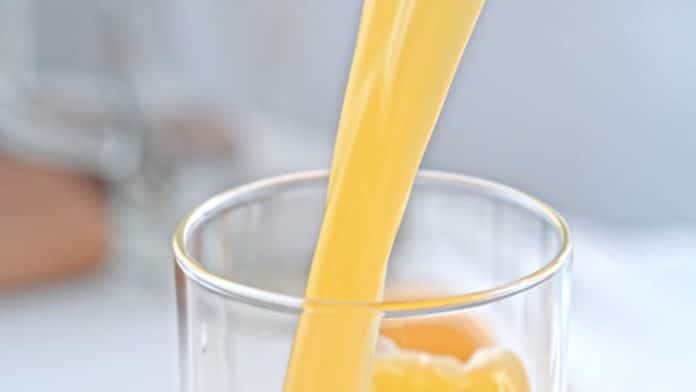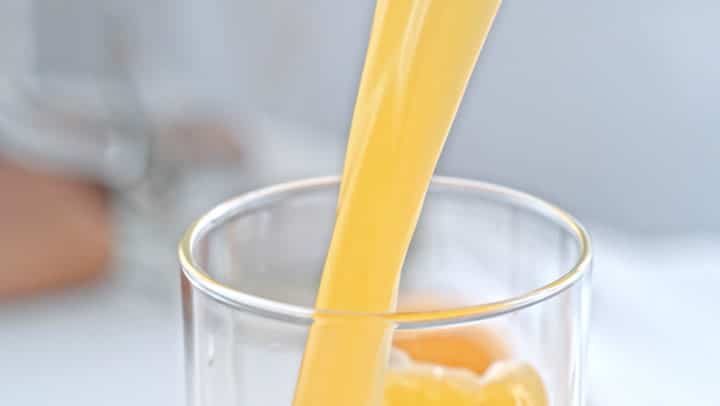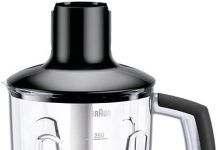Imagine waking up every morning to a refreshing glass of vibrant orange juice or sipping on a glass of ruby-red grape juice during lunch. The thought alone can make your taste buds tingle with excitement. But have you ever wondered what happens to your body when you make drinking juice a daily habit? From increased hydration to a boost in nutrient intake, the effects may surprise you. In this article, we will explore the incredible things that can happen to your body when you embrace the power of juice. So, grab a glass and join us on this juicy adventure!
This image is property of images.healthshots.com.
Review contents
Effect on Blood Sugar Levels
Increase in Blood Sugar Levels
Drinking juice every day can lead to a significant increase in blood sugar levels. Most juices contain high amounts of natural sugars, such as fructose, which are rapidly absorbed into the bloodstream. As a result, the body experiences a spike in blood sugar levels, causing a sudden burst of energy. However, this spike is often followed by a rapid drop in blood sugar, leaving us feeling tired and lethargic. The repeated consumption of juice can lead to chronically elevated blood sugar levels, ultimately increasing the risk of developing diabetes.
Risk of Diabetes
Regular intake of juice has been associated with an increased risk of developing type 2 diabetes. The high sugar content of juice can overload the body’s ability to produce insulin, a hormone responsible for regulating blood sugar levels. Over time, this can lead to insulin resistance, a condition where the body becomes less responsive to the effects of insulin. Consequently, blood sugar levels remain consistently elevated, increasing the risk of developing diabetes. Therefore, it is crucial to monitor our juice consumption and opt for healthier alternatives to maintain stable blood sugar levels.
Weight Gain
Drinking juice every day can also contribute to weight gain. While juices are often marketed as a healthy choice, they can be calorie-dense due to their high sugar content. Moreover, juices lack the fiber content that whole fruits and vegetables offer. Without fiber, the body metabolizes the sugars more quickly, often leading to an excessive calorie intake. Additionally, the sugar in juice does not provide the same feeling of fullness as consuming whole fruits and vegetables, leading to overconsumption. Therefore, excessive juice consumption can contribute to weight gain and make it challenging to achieve and maintain a healthy weight.
Impact on Digestive System
Increased Sugar Intake
Drinking juice every day can lead to an increased intake of sugar, which can negatively impact our digestive system. The natural sugars found in juice can be difficult for the body to break down and absorb efficiently. This can result in excessive fermentation in the gut, leading to the production of gas, bloating, and discomfort. Furthermore, an excessive sugar intake can disrupt the balance of beneficial bacteria in the gut, potentially leading to digestive issues such as diarrhea, constipation, and intestinal inflammation.
Reduced Fiber Intake
One of the key drawbacks of consuming juice instead of whole fruits and vegetables is the reduced fiber intake. Fiber plays a crucial role in the digestive process, promoting regular bowel movements and maintaining a healthy gut. However, when juice is extracted from fruits and vegetables, the natural fiber is often left behind. Without fiber, digestion may become less efficient, leading to slower transit time and potential constipation. To maintain optimal digestive health, it is essential to prioritize whole fruits and vegetables rather than relying solely on juice.
Digestive Issues
Regularly drinking juice can potentially lead to various digestive issues. The high sugar content in juice can disrupt the balance of bacteria in the gut, leading to an overgrowth of harmful bacteria. This imbalance, known as dysbiosis, can manifest as digestive symptoms such as bloating, gas, and abdominal discomfort. Furthermore, the lack of fiber in juice can contribute to slower digestion and reduced bowel movements, increasing the risk of constipation. To support a healthy digestive system, incorporating a diverse range of whole fruits, vegetables, and fiber-rich foods is essential.
Nutritional Imbalances
Lack of Essential Nutrients
While juice can provide some vitamins and minerals, it often lacks the comprehensive nutritional profile of whole fruits and vegetables. The juicing process can strip away essential nutrients, including dietary fiber, protein, and certain antioxidants. This can lead to a lack of essential nutrients in our diet, potentially compromising our overall health and wellbeing. To ensure we receive a wide range of nutrients, it is important to include whole fruits, vegetables, lean proteins, and whole grains in our diet alongside moderate juice consumption.
High Calorie Intake
While juice may seem like a healthier beverage option, it can contribute to a high-calorie intake. Many store-bought juices and homemade varieties are laden with added sugars, which can significantly increase the calorie content. These extra calories can add up quickly, especially if we consume juice in large quantities or alongside a regular diet. Therefore, it is important to be mindful of portion sizes and opt for homemade juices with little to no added sugars to avoid excessive calorie intake.
Limited Protein Intake
Drinking juice every day can also result in limited protein intake. Protein is an essential macronutrient that plays a vital role in various bodily functions, including muscle growth, tissue repair, and immune function. While fruits and vegetables can provide small amounts of protein, they are not a significant source of this essential nutrient. Therefore, relying solely on juice for nutrition can lead to inadequate protein intake, which may impact muscle health, immune function, and overall wellbeing. To meet our protein needs, it is crucial to incorporate other protein-rich food sources, such as lean meats, poultry, fish, legumes, and dairy products, into our diet.
Dental Health Concerns
Acid Erosion
Drinking juice every day can have detrimental effects on dental health, particularly regarding acid erosion. Most juices, even those made from natural fruits, are acidic in nature. The high acid content can erode the enamel, the protective outer layer of our teeth. Over time, this erosion can weaken the enamel, making the teeth more susceptible to decay, sensitivity, and discoloration. To minimize the risk of acid erosion, it is advisable to limit juice consumption, rinse the mouth with water after consuming juice, and maintain good oral hygiene practices, including regular brushing and flossing.
Tooth Decay
Frequent consumption of juice can significantly increase the risk of tooth decay. The natural sugars found in juice provide fuel for harmful bacteria in the mouth, leading to the production of acid. This acid not only causes enamel erosion but also promotes the formation of plaque and dental cavities. Additionally, the sticky nature of juice can cause sugars to cling to teeth, providing an optimal environment for bacteria growth. To prevent tooth decay, it is essential to practice good oral hygiene, limit juice consumption, and opt for healthier beverage choices such as water or herbal teas.
Enamel Damage
Drinking juice every day can gradually damage the enamel of our teeth. Enamel is the protective layer that shields the teeth from daily wear and tear. However, the acid and sugar content in juice can weaken the enamel, making it more susceptible to damage. This can result in increased tooth sensitivity, discoloration, and an increased risk of tooth fractures. To protect the enamel, it is essential to minimize juice consumption, practice good oral hygiene, and seek professional dental care regularly.
This image is property of www.eatthis.com.
Effect on Hydration
Limited Hydration
Contrary to popular belief, drinking juice every day may not provide adequate hydration. While juice does contain some water, it also contains varying amounts of sugars and other compounds. These additional components can actually have a dehydrating effect on the body as they require additional water for proper metabolism and elimination. Therefore, relying solely on juice for hydration may not be sufficient, and it is important to prioritize drinking plain water to maintain optimal hydration levels.
Higher Fluid Intake
On the other hand, incorporating juice into our diet can lead to a higher overall fluid intake. While juice may not be as hydrating as plain water, it still contributes to our daily fluid intake. Staying adequately hydrated is crucial for various bodily functions, including maintaining body temperature, supporting cellular function, and promoting digestion. By incorporating moderate amounts of juice alongside plenty of water, we can ensure better overall hydration.
Potential Weight Loss Aid
Caloric Restriction
Drinking juice every day can potentially aid in weight loss through caloric restriction. Juice is generally lower in calories compared to other sugary beverages such as soda or energy drinks. By replacing high-calorie beverages with juice, we can reduce our overall calorie intake and create a calorie deficit, which is necessary for weight loss. However, it is important to note that juice should not be relied upon as the sole means of weight loss and should be consumed as part of a balanced diet and healthy lifestyle.
Increased Fruit and Vegetable Consumption
Regular juice consumption can also increase our intake of fruits and vegetables, which are vital for weight loss and overall health. Juicing allows us to consume a larger quantity of fruits and vegetables in liquid form, making it easier to reach our recommended daily servings. Fruits and vegetables are low in calories and high in essential nutrients and fiber, which promote satiety and support healthy weight management. Incorporating a variety of fruits and vegetables in our juice recipes can be a delicious and convenient way to increase our overall intake, aiding in weight loss efforts.
Increased Satiety
Drinking juice every day can potentially increase feelings of satiety, which can aid in weight loss. Juice, particularly when made from whole fruits and vegetables, contains a good amount of fiber. Fiber helps to slow down digestion, keeping us feeling fuller for longer periods. This can help prevent overeating and unnecessary snacking, contributing to calorie control and weight loss. However, it is important to consume juice in moderation and alongside a balanced diet to ensure a well-rounded intake of essential nutrients.
This image is property of www.eatingwell.com.
Effects on Cholesterol
Positive Impact on HDL Cholesterol Levels
Regular juice consumption, especially juices made from certain fruits and vegetables, can have a positive impact on HDL (high-density lipoprotein) cholesterol levels. HDL cholesterol is often referred to as “good” cholesterol, as it helps remove excess cholesterol from the bloodstream, reducing the risk of heart disease. Some fruits and vegetables, such as oranges, grapefruits, berries, and leafy greens, are rich in antioxidants and soluble fiber, which can promote HDL cholesterol production. Incorporating these juices into our diet can potentially help improve our cholesterol profile.
Negative Impact on LDL Cholesterol Levels
While juice can have a positive impact on HDL cholesterol levels, it may also negatively affect LDL (low-density lipoprotein) cholesterol levels. LDL cholesterol is often referred to as “bad” cholesterol, as high levels can increase the risk of heart disease. Many store-bought juices and homemade varieties contain added sugars, which can raise triglyceride levels and contribute to higher LDL cholesterol. Therefore, it is important to be mindful of portion sizes, choose homemade juices with little to no added sugars, and prioritize whole fruits and vegetables to maintain healthy LDL cholesterol levels.
Impact on Liver Health
Increased Sugar Load
Drinking juice every day can contribute to an increased sugar load on the liver. The liver plays a vital role in metabolizing sugars and converting them into usable energy for the body. However, excessive sugar intake, especially from juice, can overload the liver’s capacity to process and regulate blood sugar levels. This increased sugar load can lead to inflammation, insulin resistance, and potential liver damage over time. To support liver health, it is critical to limit juice consumption, choose low-sugar options, and prioritize whole fruits and vegetables.
Risk of Fatty Liver
Regularly consuming juice with high sugar content can increase the risk of developing fatty liver disease. Excessive sugar intake, particularly fructose, metabolizes in the liver and is converted into fat. Over time, this can lead to the accumulation of fat in the liver, resulting in fatty liver disease. Fatty liver can impair liver function, promote inflammation, and increase the risk of developing more severe liver conditions such as cirrhosis or liver failure. To protect liver health, it is advisable to choose juice options with minimal added sugars and focus on a well-balanced diet.
Liver Detoxification
Despite potential risks, certain juices can support liver health through their detoxifying properties. Many fruits and vegetables, such as lemon, beetroot, and leafy greens, contain antioxidants and compounds that aid in the liver’s natural detoxification processes. These juices can promote the elimination of toxins and support liver function. However, it is important to note that juice alone is not a magical cure for liver detoxification. A well-rounded diet, hydration, exercise, and minimizing exposure to toxins are crucial for maintaining optimal liver health.
This image is property of www.juicingwithtania.com.
Effect on Skin Health
Benefits of Antioxidants
Regular consumption of certain juices can have benefits for skin health due to their antioxidant content. Antioxidants, found in fruits and vegetables, help neutralize harmful free radicals, reducing oxidative stress and inflammation in the body. This can result in improved skin health, including a reduction in the appearance of wrinkles, improved skin tone, and a healthier complexion. Some juices, such as those made from berries, citrus fruits, and leafy greens, are particularly rich in antioxidants and can be beneficial when incorporated into a balanced diet.
Potential for Acne Breakouts
While juice can have beneficial effects on skin health, excessive consumption, especially of fruit juices, can potentially contribute to acne breakouts. Some fruits, particularly tropical fruits like mangoes and pineapples, have a higher sugar content and a higher glycemic index, which can spike blood sugar levels more rapidly. Elevated blood sugar levels can stimulate the production of insulin and insulin-like growth factor (IGF-1), leading to increased sebum production and the development of acne. To maintain clearer skin, it is important to choose juices with a lower sugar content and prioritize a well-balanced diet.
Potential for Discoloration
Certain juices, particularly those made from deeply pigmented fruits and vegetables, can potentially cause skin discoloration. The pigments responsible for the vibrant colors in these fruits and vegetables, such as beetroot and carrots, can temporarily stain the skin when consumed in large quantities or with high frequency. While this discoloration is usually harmless and fades with time, it is important to be mindful of consumption patterns and prioritize a diverse range of fruits and vegetables in our diet for overall skin health.
Mood and Cognitive Effects
Natural Sugar Highs and Lows
Drinking juice every day can contribute to natural sugar highs and lows, affecting both mood and cognitive function. The rapid absorption of sugars from juice can provide a temporary energy boost and elevate mood. However, this surge in blood sugar is often followed by a crash as blood sugar levels drop. These fluctuations can lead to fatigue, irritability, difficulty concentrating, and impaired memory. To maintain stable energy levels and support cognitive function, it is important to incorporate whole foods, including fruits, vegetables, lean proteins, and healthy fats, into our diet alongside moderated juice consumption.
Lack of Sustained Energy
While juice may provide a quick energy boost, it often lacks the sustained energy that whole foods can provide. Juice primarily contains carbohydrates in the form of sugars, which are quickly metabolized by the body. Without a balance of proteins, fats, and fiber, the energy released from juice is short-lived and may lead to feelings of tiredness and the need for constant refueling. To maintain steady energy levels throughout the day, it is important to combine juice with other nutrient-dense foods that provide sustained energy.
Impact on Cognitive Function
Consuming juice every day can impact cognitive function, particularly in terms of memory and attention span. The high sugar content in juice can impair memory formation and retention, leading to difficulty remembering and processing information. Additionally, rapid fluctuations in blood sugar levels, as mentioned earlier, can negatively affect overall cognitive function. By prioritizing a well-balanced diet, including whole foods and limiting excessive juice consumption, we can support optimal brain health and cognitive function.
This image is property of cdn.jwplayer.com.




































